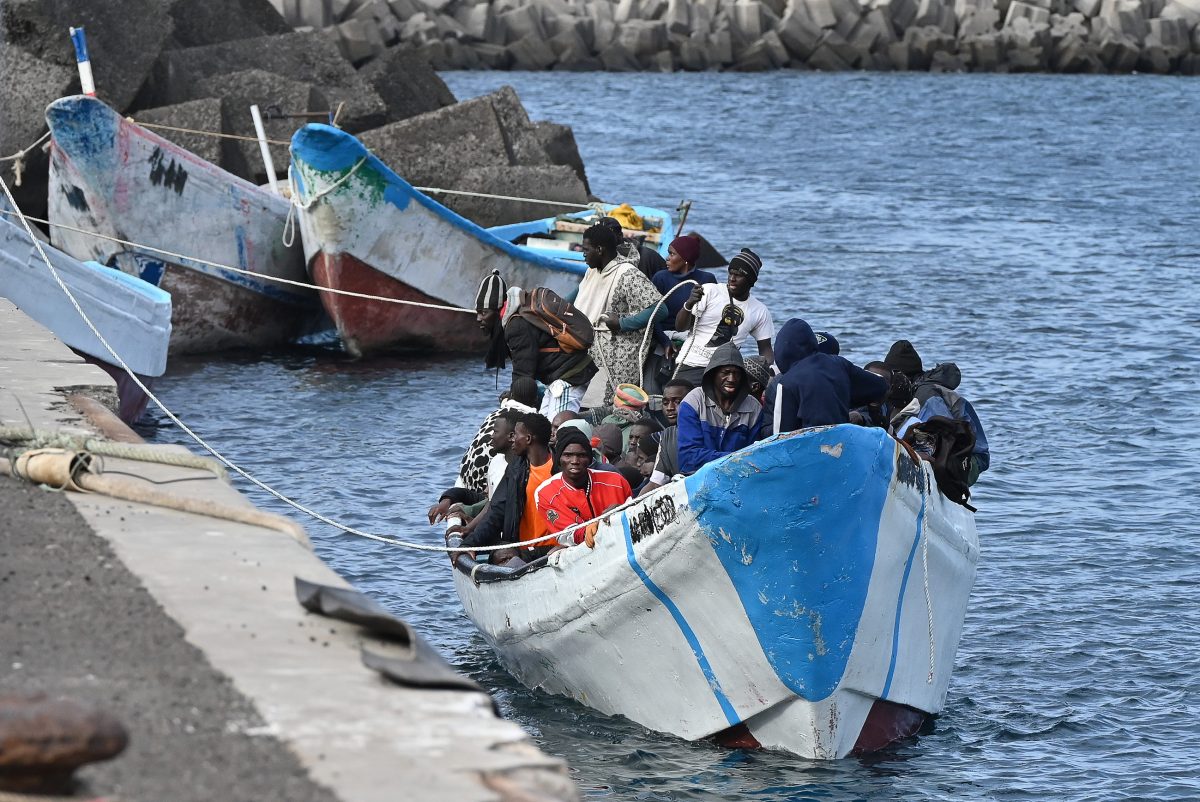On Thursday, May 23, NODES researchers and scientists presented the initial results from their work on migration narratives. This study, following those on climate change and COVID-19, is the third in the series “The Narratives that Shape Our World,” which addresses crucial issues for our democracies.
During this third phase, they’ve been looking at the narratives that organise the public debate on migration. It’s one of the main challenges Europe is currently facing, and a strongly polarised topic – even more than climate change and vaccines.
Using quantitative and qualitative methods, they analysed thousands of data (newspaper articles, blog posts, as well as social media posts) in 4 languages and 5 countries (Spain, France, UK, Ireland, and Poland) and were able to create a map of recurrent motives. They identified 7 main narratives that create the current landscape in the European debate about migration. Each of them is associated with underlying values.
Narratives — or simply the stories we share, are the primary tool by which we communicate, assimilate, and store information. They unite and divide us, creating and sustaining ‘narrative communities’.
Professor Andrzej Nowak, Chief Narrative Scientist at Re-Imagine Europa and Lead Researcher of NODES, highlighted that “the public debate around migration activates the strongest emotions – fear, uncertainty, solidarity, and empathy. To combat misinformation, we must learn to build bridges between different narratives.”
Professor Marcin Napiórkowski, Contemporary Mythologies Scholar at RIE, explained that “In the case of climate and COVID-19, we saw many values that united supporters of opposing narratives. For example, both climate activists and denialists emphasised their commitment to tradition. Others, on the other hand, viewed progress as important. In the case of migration, such value-based bridges are almost non-existent. So we must look elsewhere. For instance, by examining carefully the spatial and temporal perspectives of different narratives. If two opposing narratives about migrants agree only on the importance of locality and a long-term approach, then there is already some starting point for discussion.”
- Tragedy. This narrative shows the long journeys of migrants and their difficult fates. The focus is often on the dire conditions in the country of origin or on the suffering migrants experience along the way or on the loss of life, particularly at sea. Migrants are defenceless, they are victims, they are in danger.
Values: solidarity, empathy
Keywords: tragedy, victims, camp, drown
- Solidarity. This narrative is about integration in the destination country and the obligations its inhabitants have towards migrants. The narrative is about helping or criticising the lack of help, criticising intolerance, discrimination or fear mongering.
Values: solidarity, empathy
Keywords: help, discrimination
- Migrants are good for the economy. This narrative presents migrants as crucial to the economy or demography. Migrants work hard, bring profits and develop the economy. Their import from abroad is assessed positively.
Values: economy, growth, profit
Keywords: demography, business, economy
- Crisis and regulation. This narrative neutrally describes migration as a large, important phenomenon. It draws attention to the growing number of migrants and the related challenges or describes specific regulations that should be taken. This narrative does not express positive or negative sentiment towards migrants.
Value: order
Keywords: regulate, crisis, issue, topic, discuss
5. Under siege. This narrative portrays migrants as a threat that attacks our country from the outside. Migrants are aggressive, strong and dangerous. They are described as a wave or influx. The narrative often focuses on the border, describing the need to defend, strengthen and guard it. Sometimes it criticises those who are too soft or naive. It criticises people who downplay the danger and create a risk that migrants will cross the border. It sometimes describes specific attempts to break through the border.
Values: security, stability, sovereignty
Keywords: influx, invasion, wave, attack, siege
6. Migrants do not integrate. This narrative portrays migrants as a threat that attacks us from within. Migrants do not integrate into our society, do not accept our values and lifestyles, and therefore pose a threat to us. Migrants do not respect our norms. They commit many crimes – the narrative particularly often draws attention to murders, rapes, robberies and devastation of property. Sometimes it criticises multiculturalism and forced tolerance (woke culture), claiming that it is a new form of censorship that makes it difficult to tell the truth about migrants when there are already too many of them in our country.
Values: security, stability, cultural coherence
Keywords: chaos, crime, murder, rape, uncontrolled
7. Migrants are stealing what’s ours. This narrative portrays migrants as taking unproportional, unfair share of limited resources. Migrants enjoy undeserved privileges. They illegally use taxpayers’ money by collecting benefits. They’re taking our jobs. We spend a lot of money on their maintenance and support, which could be spent on helping our children or health care.
Values: economy, growth, justice (fairness)
Keywords: social security, job, work, unfair
NODES (Narratives Observatory combatting Disinformation in Europe Systemically) is a research pilot-project co-funded by the European Commission, in response to the pressing challenge of understanding the powerful narratives that shape citizens’ minds and impact individual and social behaviours.
The NODES project is led by the European think tank Re-Imagine Europa and includes top level institutions and organisations such as Agence France-Presse (AFP), the French National Centre for Scientific Research (CNRS), PlusValue, Sotrender, Science Feedback and Università Ca’ Foscari Venezia.
